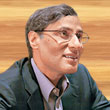“so-called democracy camp”
2016/02/04 08:41:31 網誌分類: 生活
The expression “so-called” is used to show that you feel a word that is used to describe something or someone is unsuitable or inaccurate. For example, friends who never help you when you need their help are not true friends. They are so-called friends. Nowadays, I always say “so-called democracy camp” because I think it is inaccurate to call it the democracy camp. True democrats will not criticize those who disagree with them as pro-establishment. That’s why I think it’s more accurate to call the so-called democracy camp the opposition camp because nowadays it opposes every government policy just for the sake of opposing it. When you do something just for the sake of it, it means you are doing it for no purpose or reason.
I have criticized the central government for refusing to explain why it has detained Hong Kong bookseller Lee Po. I have criticized the Hong Kong government for encouraging more mainland tourists to come here even though Hong Kong is already swamped (flooded, inundated, overloaded) by mainland visitors. I have criticized Chief Executive Leung Chun-ying’s latest policy speech. How can I be pro-establishment if I criticize the central and Hong Kong governments? But that is not enough for the so-called democracy camp. Hong Kong’s so-called democrats want people to support everything they do even if people disagree with some of the things they do, and they want people to always oppose the Hong Kong and central governments. They call people who take a middle-ground pro-establishment.
在上一篇專欄裏我寫到,有朋友告訴我,許多人現在說我已經變成親建制——那是個香港習語,意思是我支持香港和中央政府。我寫到,單純因為我不同意那所謂的(so-called)泛民陣營所做的某些事,便將我說成是親建制,根本是胡說八道。真正的民主是容許人們不表認同。美國總統奧巴馬從來不會說,反對他的美國人就是不支持民主的。但香港的泛民派卻期望人們支持他們所做的一切事。因此我現在會稱之為so-called民主派。
習語so-called是當你認為一個形容某事或某人的字眼是不適當或不準確時,就可以用到。譬如,當你需要幫助時,那些從不幫助你的朋友就不是真正的朋友。他們只是所謂的(so-called)朋友。今天,我總是說“so-called democracy camp”,因為我認為要叫他們做民主派,並不準確。真正的民主主義者不會將那些不同意他們的人批評為親建制派。因此我認為那所謂的(so-called)民主派,稱為反對派會更準確,因為今時今日,它反對政府每一個政策,只為了(for the sake of)反對而反對。當你做某事just for the sake of it,那你只是為了做而做,沒有特別目的或原因。
我有批評中央政府拒絕解釋為何要拘留香港書商李波。我有批評香港政府鼓勵更多內地旅客訪港,即使香港已經被內地旅客淹沒(swamped)。我有批評特首梁振英最新的施政報告。若我批評中央和香港政府,又怎會是親建制的?可那對於所謂的(so-called)民主派來說,仍然不夠。香港的所謂(so-called)民主主義者,期望人們會支持他們所做的一切事,即使人們對某些事情不同意;他們也想人們會恒常反對香港和中央政府。對於那些採取中間立場的人,他們就稱之為親建制。
中譯:七刻
Michael Chugani 褚簡寧
回應 (0)
我要發表

